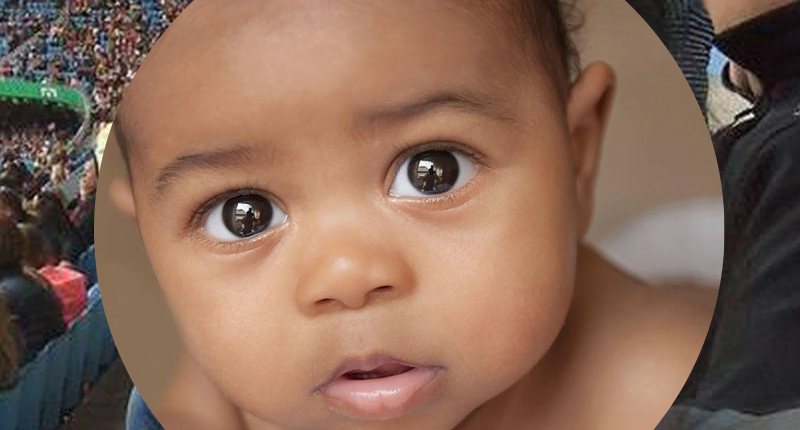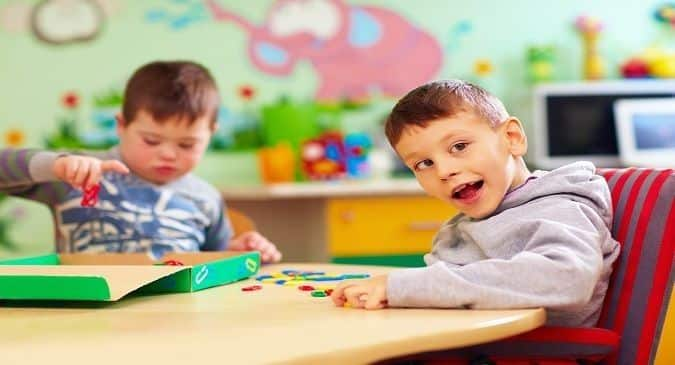Understanding How Ethnicity Affects Baby Appearance – Have you ever wondered why newborns of different ethnicities look so distinct from one another? There is a long-standing myth that ethnicity affects a baby’s physical appearance only during puberty, but the reality is much different. In fact, ethnicity plays a crucial role in shaping a baby’s appearance from the moment of conception.
The Science Behind Ethnic Differences in Infant Appearance
The genetics of an individual determine a wide range of physical characteristics, including facial features, skin tone, and hair texture. The combination of genes inherited from each parent determines the ethnicity of the child and, in turn, affects the child’s appearance. The genes responsible for physical traits are located on different chromosomes and are referred to as “polygenic traits.” These traits are the result of many genes working together and are influenced by both genetics and environment.
The Influence of Ethnicity on Facial Features
Facial features are among the most noticeable differences between newborns of different ethnicities. The shape and size of the face, nose, lips, eyes, and cheekbones are all determined by genetics. For example, newborns of African descent typically have wider nostrils, fuller lips, and flatter noses compared to newborns of Asian descent who tend to have narrower nostrils, smaller lips, and more prominent noses.
The Influence of Ethnicity on Skin Tone
Skin tone is another area where ethnicity can have a significant impact. Melanin, the pigment responsible for skin color, is produced in cells called melanocytes. The amount of melanin produced is determined by genetics. Newborns of African descent typically have more melanin, which gives their skin a darker complexion. On the other hand, newborns of Asian descent tend to have less melanin, resulting in a lighter complexion.
Also read | Unpacking the Electra Complex: A Comprehensive Guide to Understanding Psychology
The Influence of Ethnicity on Hair Texture
Hair texture is also influenced by ethnicity. The shape and diameter of the hair follicle determine hair texture, which is determined by genetics. Newborns of African descent typically have thicker, curlier hair compared to newborns of Asian descent who tend to have straighter, finer hair.
The Role of Environment
While genetics play a significant role in determining a baby’s physical appearance, the environment can also play a role. Environmental factors such as diet, stress, and exposure to certain chemicals can impact the expression of genes, resulting in variations in physical appearance. For example, a baby who is exposed to high levels of stress hormones in the womb may be born with a darker complexion than expected based on genetics alone.
The Role of Genetics in Ethnic Physical Characteristics
One of the most significant factors that determine a baby’s appearance is genetics. Every person has a unique combination of genes inherited from their parents. This genetic information carries information about a person’s physical characteristics, including ethnicity. Ethnicity is a complex concept that encompasses not only genetics but also cultural, linguistic, and historical factors.
Genes are responsible for the traits that are passed down from generation to generation, such as hair color, eye color, skin color, and facial features. For example, people of African descent are more likely to have curly hair and dark skin due to the genetic traits passed down from their ancestors. Similarly, people of Asian descent are more likely to have straight hair and lighter skin due to the genetic traits passed down from their ancestors.
The Interaction of Ethnicity and Environment
However, genetics alone cannot explain the full range of physical characteristics that define an ethnicity. The environment also plays a crucial role in shaping a person’s appearance. For example, a person of African descent living in a tropical environment will have a darker skin tone compared to a person of African descent living in a temperate environment. This is because the body produces more melanin in response to UV radiation in a tropical environment to protect the skin.
Don’t Miss | Three Factors That Contribute To Weight Gain: Do You Have Any Of Them?
The Impact of Intermarriage on Baby Appearance
In today’s world, intermarriage between people of different ethnicities is becoming more common. This means that more and more babies are born with a mixture of different ethnicities. As a result, these babies may exhibit physical characteristics from both of their parents’ ethnicities. For example, a baby born to a parent of African descent and a parent of Asian descent may have curly hair and lighter skin.
Conclusion
In conclusion, ethnicity plays a crucial role in shaping a baby’s appearance from the moment of conception. Facial features, skin tone, and hair texture are all influenced by genetics and can vary greatly between newborns of different ethnicities. While environment can also play a role, genetics remain the primary factor in determining a baby’s physical appearance.
FAQs
Can a baby’s appearance change after birth?
Yes, a baby’s appearance can change after birth as they grow and develop. However, the basic physical characteristics determined by genetics, such as facial features and skin tone, tend to remain consistent throughout life.
Can a baby’s ethnicity change after birth?
No, a baby’s ethnicity is determined by the combination of genes inherited from each parent and cannot be changed after birth.
Can environmental factors change a baby’s appearance?
Yes, environmental factors such as diet, stress, and exposure to certain chemicals can impact the expression of genes and result in variations in physical appearance.
Understanding How Ethnicity Affects Baby Appearance Sources | 1, 2, and 3









